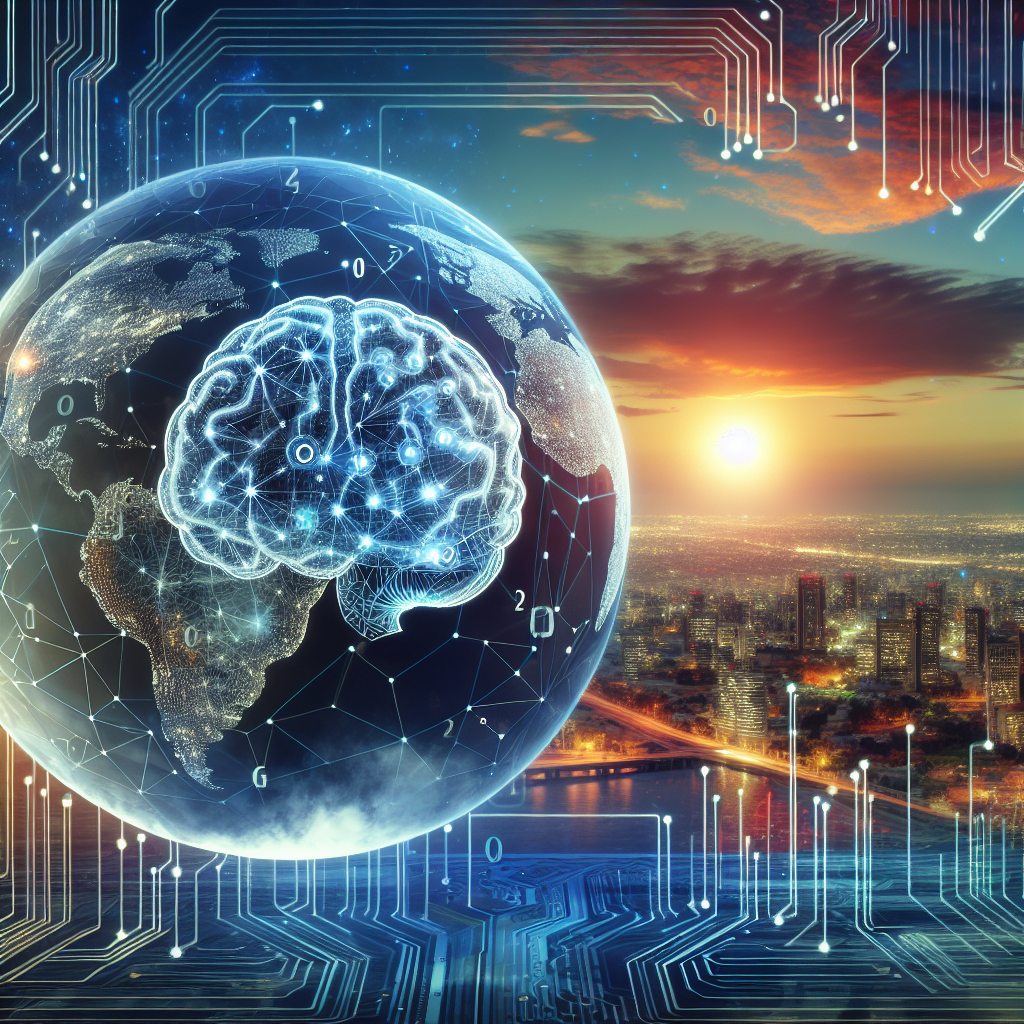Artificial General Intelligence (AGI) is a term that refers to a type of artificial intelligence that possesses the ability to understand, learn, and apply knowledge across a wide range of tasks and domains. Unlike most AI systems today, which are designed for specific tasks or domains, AGI is intended to be as capable and versatile as a human mind. The development of AGI has the potential to revolutionize many aspects of society and change the way we live and work in profound ways. In this article, we will explore the future of AGI and how it is changing the world.
The Rise of Artificial General Intelligence
The concept of AGI has been around for decades, but it is only in recent years that significant progress has been made in its development. Advances in machine learning, deep learning, and neural networks have enabled researchers to create AI systems that can perform complex tasks with human-like intelligence. Companies like Google, Facebook, and OpenAI are leading the way in the development of AGI, investing billions of dollars into research and development.
One of the key challenges in developing AGI is creating systems that can learn and adapt to new situations, much like a human brain. Current AI systems are limited by their narrow focus and lack of generalization, which makes it difficult for them to transfer knowledge from one task to another. AGI researchers are working on creating systems that can learn from experience, reason about complex problems, and make decisions autonomously.
The Potential Impact of AGI
The development of AGI has the potential to revolutionize many industries and sectors of society. In healthcare, AGI could be used to analyze medical data and make diagnoses more accurately and quickly than human doctors. In finance, AGI could be used to predict market trends and make investment decisions with greater precision. In transportation, AGI could be used to improve traffic flow, reduce accidents, and optimize routes for delivery services.
AGI also has the potential to create new opportunities for innovation and entrepreneurship. Startups and small businesses could use AGI to automate tasks, improve customer service, and develop new products and services. AGI could also help researchers and scientists make breakthroughs in fields like climate change, genetics, and space exploration.
However, the rise of AGI also raises concerns about its impact on jobs, privacy, and security. Many experts believe that AGI could lead to widespread automation of jobs, as AI systems become more capable of performing tasks that were once done by humans. This could lead to economic disruption and social unrest, as workers are displaced by machines. There are also concerns about the ethical implications of AGI, such as how to ensure that AI systems are used responsibly and ethically.
The Future of AGI
Despite these challenges, the future of AGI looks promising. Researchers are making rapid progress in developing AI systems that can perform increasingly complex tasks with human-like intelligence. Breakthroughs in areas like natural language processing, computer vision, and reinforcement learning are bringing us closer to the goal of creating truly intelligent machines.
One of the key milestones in the development of AGI is the creation of a system that can pass the Turing Test, a test of a machine’s ability to exhibit intelligent behavior indistinguishable from that of a human. While no AI system has passed the Turing Test yet, researchers are making progress in creating systems that can understand and generate natural language, reason about complex problems, and learn from experience.
Another important development in the field of AGI is the creation of AI systems that can learn autonomously, without human intervention. These systems, known as self-learning AI, are able to improve their performance over time by analyzing data, identifying patterns, and adjusting their algorithms accordingly. Self-learning AI has the potential to revolutionize many industries, from healthcare to finance to manufacturing.
FAQs
Q: What is the difference between AGI and narrow AI?
A: AGI is a type of artificial intelligence that possesses the ability to understand, learn, and apply knowledge across a wide range of tasks and domains. Narrow AI, on the other hand, is designed for specific tasks or domains, such as playing chess or recognizing objects in images.
Q: When will AGI be developed?
A: It is difficult to predict when AGI will be developed, as it depends on many factors, including technological advancements, research funding, and regulatory approval. Some experts believe that AGI could be developed within the next 10-20 years, while others think it may take longer.
Q: What are the ethical implications of AGI?
A: There are many ethical implications of AGI, including concerns about job displacement, privacy, security, and bias. It is important for researchers, policymakers, and industry leaders to address these issues proactively and ensure that AI systems are used responsibly and ethically.
Q: How will AGI impact society?
A: AGI has the potential to revolutionize many aspects of society, from healthcare to finance to transportation. While the full impact of AGI is still unknown, it is likely to create new opportunities for innovation and entrepreneurship, as well as challenges in terms of job displacement and ethical concerns.
In conclusion, the future of AGI holds great promise for revolutionizing many aspects of society and changing the way we live and work. While there are challenges and concerns to address, the potential benefits of AGI are significant and could lead to a more efficient, productive, and intelligent world. It is important for researchers, policymakers, and industry leaders to work together to ensure that AGI is developed responsibly and ethically, for the benefit of all.

